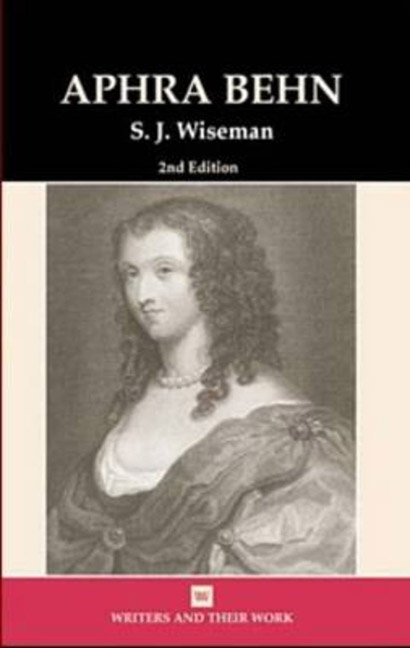2 - Poetry
Summary
BEHN AS A RESTORATION POET
Before we can begin to ask what kind of poet Behn was, it is necessary to investigate the ways in which poetry was produced in the period. The conditions of literary production during the Restoration were such that poems might circulate in a variety of forms, from copied manuscript to printed anthology. This meant that poems might exist in several different versions, and can be misattributed. Scholars are still in doubt about whether some poems are by Behn or by other contemporaries. That her poems were recirculated and copied, and that some poems now attributed to her were claimed for other poets, are marks of her integration into the mainstream of London literary production, and not, as it might seem to us now, ‘the fate of the woman writer'.
When Behn was writing, poetry was not considered to be a medium for the expression of feelings (as some people have regarded it in the twentieth century). Although poetry might address personal issues, it was more often considered to be a shared and public discourse. Thus, while in the nineteenth century an elegy would probably be a personal poem about a dead person, and expressive of a poet's feelings, in the seventeenth century, as Milton's ‘Lycidas’ and Behn's elegy for Rochester suggest, even an elegy would be the occasion of other thoughts and a public manipulation of the codes of a particular type of poem. One indication of how meanings change is that in the seventeenth century an elegy did not have to be about a dead person at all.
Much verse was occasional in the sense of being written in relation to specific events - whether public, political, scandalous, or social. Such poetry was a form of commentary on and intervention in social and political events and opinions. Moreover, during the last quarter of the seventeenth century print was an increasingly important mode for public commentary taking a variety of forms. Newspapers had been circulating since the 1620s and became fully established during the Civil War. Broadsides and short pamphlets flourished during times of crisis. Ballads, as well as books, were printed and hung up in inns or circulated in coffee-houses where popular opinion was formed. Manuscript satires were copied and circulated, and in the 1680s there seems to have been an industry of hand-copying the latest poems and lampoons for sale.
- Type
- Chapter
- Information
- Aphra Behn , pp. 10 - 24Publisher: Liverpool University PressPrint publication year: 2006



